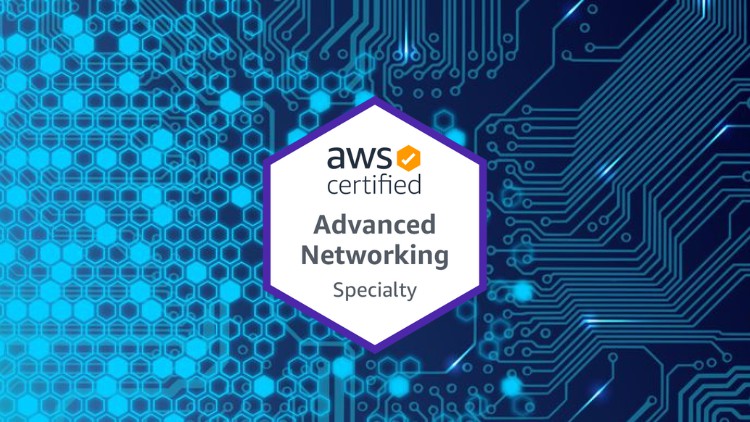
Description
If you are looking to take on the “AWS Certified Advanced Networking – Specialty” certification you should consider going through the course materials as it will significantly increase your chances to pass the exam.
This course is composed out of:
- 340 Multiple Choice Questions divided into 4 practice tests, all of them following the exam blueprint.
Abilities Validated by the Certification:
- Design, develop, and deploy cloud-based solutions using AWS
- Implement core AWS services according to basic architecture best practices
- Design and maintain network architecture for all AWS services
- Leverage tools to automate AWS networking tasks
- AWS Advanced Networking
- Type – Exam Format
- Number of Questions – 340
- MCQ and Answers with Explanations
- Last Updated – 9th June of 2022
Course Structure
AWS Advanced Networking Specialty exam covers the following topics –
Domain 1: Designing and implementing the hybrid IT network architectures at scale (23%)
1.1 Implement connectivity for hybrid IT
1.2 Given a scenario, derive an appropriate hybrid IT architecture connectivity solution
1.3 Explain the process to extend connectivity using AWS Direct Connect
1.4 Evaluate design alternatives that leverage AWS Direct Connect
1.5 Define routing policies for hybrid IT architectures
Domain 2: Designing and implementing AWS networks (29%)
2.1 Apply AWS networking concepts
2.2 Given customer requirements, define network architectures on AWS
2.3 Propose optimized designs based on the evaluation of an existing implementation
2.4 Determine network requirements for a specialized workload
2.5 Derive an appropriate architecture based on customer and application requirements
2.6 Evaluate and optimize cost allocations given a network design and application data flow
Domain 3: Automating the AWS tasks (8%)
3.1 Evaluate automation alternatives within AWS for network deployments
3.2 Evaluate tool-based alternatives within AWS for network operations and management
Domain 4: Configuring the network integration with application services (15%)
4.1 Leverage the capabilities of Route 53
4.2 Evaluate DNS solutions in a hybrid IT architecture
4.3 Determine the appropriate configuration of DHCP within AWS
4.4 Given a scenario, determine an appropriate load balancing strategy within the AWS ecosystem 4.5 Determine a content distribution strategy to optimize for performance
4.6 Reconcile AWS service requirements with network requirements
Domain 5: Designing and implementing for security and compliance (12%)
5.1 Evaluate design requirements for alignment with security and compliance objectives
5.2 Evaluate monitoring strategies in support of security and compliance objectives
5.3 Evaluate AWS security features for managing network traffic
5.4 Utilize encryption technologies to secure network communications
Domain 6: Managing, optimizing, and troubleshooting the network (13%)
6.1 Given a scenario, troubleshoot and resolve a network issue






